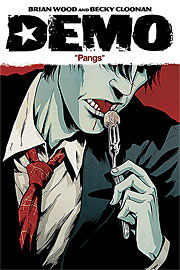Wednesdays have a holiday feeling for me lately, because I’ve gotten back into the rhythm of going to the comics store once a week. I was lured back by the lovely retro-newspaper Wednesday Comics, which came out once a week for 12 weeks in full color, looking the way you wish the Sunday comics page looked. Though those were lovely eye candy, most of the stories inside ultimately disappointed. What’s made me stay, however, is that comics have amazing range. Sometimes poignant, sometimes badass, sometimes just fun. I love the genre-bending that tends to go on. I love hanging on the slow progression of a story that comes out in serial, and then rereading it in a big slurp when the whole thing has come out.
I read and write in a lot of forms, and I find that sometimes I need to change my focus to give me a fresh feeling in a world that’s pretty dense with words. Comics have been doing that for me lately.
I just got home from the comics store clutching Cinderella: from Fabletown with Love–for those who aren’t in the know, we’re talking here about Cinderella, super-spy, and it’s everything I hoped it would be. There’s a nice interview with Chris Roberson, the writer, here.
But I’m far from the only one who feels the magic of Wednesday. Paul Cornell, at the awesome Clockwork Storybook blog (chock full of writers so cool it makes me want to cry), writes, in the post I linked at the beginning of this paragraph:
That Wednesday feeling, where one hangs around I Fanboy (I hope they note I’ve dropped the comma I kept putting in their name, like they were the fan equivalent of I, Claudius), Millarworld and other forums, waiting for the first reviews to wander in, when one can pop into a comic shop, and actually see it sitting there on the shelf (right next to the Avengers titles, hmm, that’s good) is just one of the many lovely things about writing comics. … I think the feeling is quite an ancient one, akin to what Conan Doyle and Dickens and all the other writers of serials for magazines must have felt.
(As an aside, Cornell’s talking about Black Widow: Deadly Origin #1, which he wrote, and which I also picked up this week. (It’s easy to sell me a comic–just write one about a badass female super-spy or assassin or warrior.))
I think he’s dead on with his analogy to the old serial novels. When I’ve read books like The Three Musketeers, I’ve tried to imagine what it would be like to get fed the thing chapter by chapter, to get the story in nibbles and then reread in gulps to make sense of it, to speculate excitedly with my friend about the surprises to come. Those stories work better that way. They’re epic, too big to read quickly or alone.
Comics have this quality, too. I look at Sandman sitting on my shelf, or Y: the Last Man, or any number of others, and I think about what huge, weird, and lovely stories these are. Long live the serial, and all hail Wednesday.

